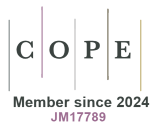Most read articles by the same author(s)
- Beatrice Canali, Laura Candelora, Francesca Fiorentino, Tom Halmos, Paola La Malfa, Francesca Massara, Chiara Vassallo, Duccio Urbinati, COVID-19 impact on the decision process of the Italian Medicine Agency: a quantitative assessment , Global and Regional Health Technology Assessment: Vol. 10 No. 1 (2023): January-December 2023
- Antonio Cuneo, Roberto Ravasio, Nicola Amedeo Mazzanti, Economic evaluation of therapeutic sequences in the treatment of patients with chronic lymphocytic leukemia and coexisting conditions , Global and Regional Health Technology Assessment: Vol. 4 No. 1 (2017): January-December 2017
- Ludovica Borsoi, Oriana Ciani, Rocco De Vivo, Giorgio Ivan Russo, Marcello Scarcia, Chiara De Fino, Patrizia Beccaglia, Irene Luccarini, Disability weights for castration-resistant prostate cancer: an empirical investigation , Global and Regional Health Technology Assessment: Vol. 9 No. 1 (2022): January-December 2022
- Carlo Lazzaro, Nicola Amedeo Mazzanti, Fabio Parazzini, Severe haematological toxicities in relapsed ovarian cancer treated with olaparib or niraparib: an Italian cost-minimization analysis , Global and Regional Health Technology Assessment: Vol. 6 No. 1 (2019): January-December 2019









